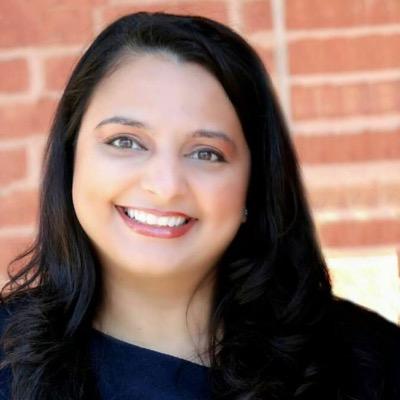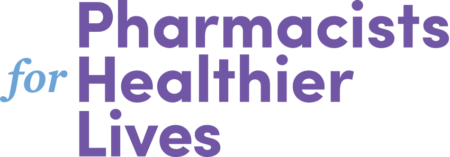Deadly fried chicken, fear of new meds, uninsured rate up, and more
25 Jan 2019
Posted by Andrew Kantor
She’s a jolly good fellow
 A big ol’ GPhA shout-out to Monali Majmudar, PharmD, of Alpharetta. She was just named a fellow of APhA Academy of Pharmacy Practice & Management.
A big ol’ GPhA shout-out to Monali Majmudar, PharmD, of Alpharetta. She was just named a fellow of APhA Academy of Pharmacy Practice & Management.
Majmudar works for GlaxoSmithKline’s adult vaccine portfolio, and “is a champion for immunizing pharmacists everywhere, serving as a mentor and expert resource within her state and across the country.”
Congrats!
And now stage two of our master plan
Pharmacists for Healthier Lives — a campaign spearheaded by the American Association of Colleges of Pharmacy and fully supported by GPhA (and a growing number of state pharmacy associations) — has completed the first stage of outreach. Now it’s ready for phase 2.

Pharmacists for Healthier Lives aims to inform and remind the public that pharmacists do more than fill bottles. Phase 1 was outreach through Facebook, including a video shared there and elsewhere.
Since its launch in October 2018, the campaign reached more than 4 million individuals on Facebook, with the campaign video achieving more than 8 million views and more than 10 million impressions.
Phase 1 begins in March with a nationwide advertising and research campaign.
You can help! Spread the word on your own website, blog, Facebook page, Twitter feed, and just using your mouth. Point your patients and colleagues to pharmacistsforhealthierlives.org and follow its Facebook page at facebook.com/PharmacistsForHealthierLives.
Do more than ask “Do you have any questions?”
Sure, there are always some people who just love taking a new medication, but most people, it turns out, are a little apprehensive.
What’s driving the concern? No one is taking the time to talk about the meds with ’em. Oh, and giving them instructions in writing doesn’t cut it — they at least prefer a video.
Learn about Medicaid “lock-in” programs
Check out this one-hour “quickinar” — a webinar on “Care Transitions: Innovative Practices to Combat the Opioid Epidemic.” It’s from Alliant Quality, the Georgia Hospital Association, and Magnolia Coastlands Area Health Education Center.
The program will describe the increasing utilization of “lock-in” programs for members served by a Georgia Medicaid Care Management Organization to address concerns for unsafe use of opioids.
Lock-in programs seek to improve coordination of patient care by restricting access to Medicaid benefits for a patient to one primary care provider and/or one pharmacy. Program attendees will learn about criteria used to determine member lock-in enrollment; additional care coordination services offered to enrolled members, and appeals processes for members, pharmacists and prescribers to change or end the lock-in enrollment.
February 6, 2019 from 1:00 – 2:00 p.m. from your favorite Web browser.
More Americans now uninsured
The U.S. uninsured rate rose to its highest point since 2014 according to new data from Gallup. At the end of 2018, 13.7% of American adults did not have health coverage. That’s below the 18+ percent rate before the Affordable Care Act took effect, but still far above every other advanced nation. (At one point it was as low as 10.9% uninsured, but that was in 2016.)
The AMA would like more diabetes telehealth programs
“[D]igital options must be part of fight against prediabetes,” according to the organization. Which makes sense, especially as diabetes remains entrenched in rural areas with few healthcare providers.
What could go wrong?
Meet Kick: the Web-based store where you can “see” a physician and get a prescription for propranolol shipped to your door to curb your anxiety. $59 gets you 24 tablets “to block shaking hands, racing heartbeat, and symptoms of nerves.”
Why did the fried chicken cross the road?
A regular serving of fried chicken or fish is associated with a higher risk of death from any cause except cancer, according to a new study done in postmenopausal women in the United States.


